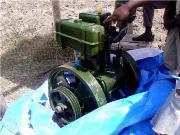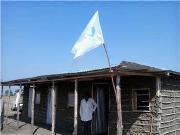CBA Climate Change News | South Sudan | Vietnam | Pakistan | Surinam | Kilimanjaro | H20 Field Guide
| SOUTH SUDAN | |
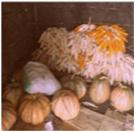 |
Piotr Barczak (Poland/Belgium/South Sudan) took several community-based adaptation courses in 2012 but was called away to South Sudan in the fall. Poitr is an environmental lobbyist in Brussels—but also has experience working in the DRC.
He has been working on a project for the past two months in Jonglei State developing an ecologically sensitive agricultural program for 60 farming families. He prepared a brief final report in English in March for those of us in the CSDi community to enjoy. Here is a link to his report so that you can learn more about his project and look at a greater range of photographs. |
| VIETNAM | Working With 192 Families in a Mainstreamed DRR Project |
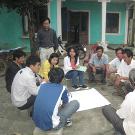 |
Teo Do is working with 192 Households in Cat Tuong commune to save their lives during natural disasters and improved family income through his CBDRR, Climate Smart Agriculture, and Improved Livelihood Project. Read about the project and see additional photos. His project includes:
|
| PAKISTAN |
Climate Change Related Extreme Weather Events Have Left Thousands of Families Homeless |
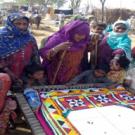 |
In September 2012 floods hit Pakistan for the third consecutive year affecting more than 5 million people. In Balochistan, among the most affected provinces, high in numbers of Balochistanis were effected, their infrastructure destroyed, and their livestock and standing crops lost. The needs they identified include shelter, food, water and farming inputs.
Karen Giathi (Kenya), Stephen Yeboah (Ghana/Switzerland), Rehmat Durrani (Pakistan) are developing a project designed to combat these challenges for 100 families living in the open or in tents which includes an advocacy program for housing support, a climate smart agricultural program, and a climate based flood mitigation and adaptation program. You can read more about their project and see photographs here.
|
| TANZANIA | Kilimanjaro: Extreme Weather Events and Recurring Drought Create Food Insecurity for 1300 Households |
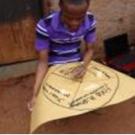 |
Since 2007 there has been severe drought and crop failure in the Kilimanjaro region—mostly in Moshi rural, Rombo, and Lower Hai and Mwanga districts. This has led to difficult livelihood challenges among community members; housing and food security are also challenges.
Minja Gileard Sifuel (Tanzania), Gemi Montecchi (Italy) and Ellen deGuzman (US) have been developing a project which includes a soil restoration program, a home gardening for nutrition program, and a soil and water resources management program. Read more about the challenges this community faces and the solutions that this team have come up with.
|
| SURINAME | Extreme Weather Events are Flooding Homes and Croplands |
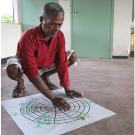 |
Approximately 100 families of the Margaretha Plantation in the District of Commewijne are suffering from damage to their homes and cropland due to the intrusion of sea and river water. This is due to the lack of a water use management plan and extreme weather events such as heavy rainfall during La Niña periods that exacerbate the intrusion of sea and river water into residential and crop land during the spring tide.
Gaitrie Satnarain (Suriname) and Wye Yee Yong (Malaysia/Thailand) have developed a project that includes a rainy season drainage and sanitation master plan, a water management plan, and a community-based flood mitigation program. Read more about the challenges this community faces and the solutions that this team have come up with – complete with photos. |
| MARCH FIELD GUIDE | Community Level Water Conservation and Management |
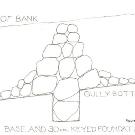 |
Developing community watershed management as a component of a master water use management plan. A shortage of water or unreliable access to water is one of the biggest issues in development. Community water sources dry up during climate change related drought—or seasonally during the dry season. There is competition among different segments of the community for available water.
Discussing community water harvesting calls for stepping back from the immediate problem and looking at the relevant underlying causes for the shortage of water in order to begin developing solutions. Download the field guide.
|
| CBDRR | Community Based Disaster Risk Reduction |
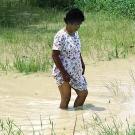 |
Hanna Bartel (Germany/Canada) and Gillian Primas (Grenada) are working on a DRR project in Grenada where over the past 10 years rainfall has become increasingly uncharacteristic and unseasonable. There is insufficient drainage of the heavy rainfall and farmers are suffering from flooded fields—which reduce incomes.
Gillian just held a consciousness-raising meeting with the community’s DRR subcommittee who made the decision at the workshop to focus first on an early warning system (which Gillian will be presenting in a workshop in two weeks) and then focus on an evacuation plan, a search and rescue team, and a mitigation plan. Read more about this project here.
|
| Spring Quarter | Are you interested in: |
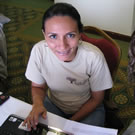 |
Would you like to learn how to develop Community Based Adaptation Projects?
Please write us with your stories, thoughts and comments through Online.Learning@csd-i.org
